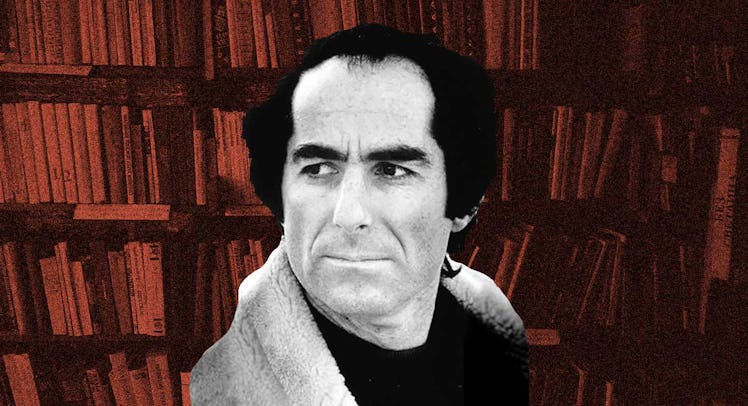How Philip Roth Saved Boys From the Shame of Masturbation
Philip Roth, who died yesterday at the age of 85, was crucial in stripping the shame away from every boy's favorite pastime of self-love.

It is probably thanks in part to the late Philip Roth, who died yesterday at the age of 85, that when my parents discovered my predilection for masturbating with their “foot massager” they were neither particularly shocked nor overly concerned. In his immensely popular 1969 novel Portnoy’s Complaint, Roth detailed all the things young men are happy to privately defile in their constant quest to get off and, in doing so, forced Americans (the ones reading his work and the work of squeamish critics) to face an important truth about adolescent boys: They are sensitive, horny monsters. At the time, the passages were deeply controversial, but they were effective in ushering in a new candor regarding masturbation long before Surgeon General Joycelyn Elders started encouraging discussions of masturbation in sexual education classes in 1993.
The passages in Portnoy’s Complaint that revealed the shocking reality of the teenage onanist’s lifestyle included detailed descriptions of the protagonist pounding one out with the help of a milk bottle, a cored apple, and a liver purchased for the sloppy task.
“I once cored an apple, saw to my astonishment (and with the aid of my obsession) what it looked like, and ran off into the woods to fall upon the orifice of the fruit,” Roth’s Portnoy tells his psychoanalyst. “Pretending that the cool and mealy hole was actually between the legs of that mythical being who always called me Big Boy when she pleaded for what no girl in all recorded history had ever had.”
Fantastically, the tale of masturbation is the literal core of Portnoy’s Complaint, which began as a chapter Roth sold to the Partisan Review which he titled “Whacking Off.” The author eventually built a book around that chapter, which sold a startling 400,000 copies in year one. Roth had hit a nerve. He had assuaged shame and offered a window into the chaotic sexuality of young men. For those who felt alone in their masturbatory shame and those that harbored suspicions about their sons, the book was eye opening
It’s interesting to note that critics of the time were generally supportive of Portnoy and while many gave a nod and a wink to the open discussion of masturbation, few high profile reviewers had complaints about the explicit passages. In fact, most of the criticism of the book was leveled at the way Roth treated Jewishness as a morally confused, guilt-ridden neurosis. Some complained it was the book “antisemites have been praying for.”
Those criticisms, which drew some blood from the Jewish author, did little to diminish the fact that Roth had lifted a curtain on the favorite pastime of the American teenager. The book became the start of a conversation about jacking off. It’s telling that when Bill Clinton forced Elders resignation over her masturbation remarks, Roth’s Portnoy was called out by New York Times columnist Frank Rich as the “Ulysses” of the masturbatory cannon that helped usher in Elder’s normalization of self-love.
And every bit of this history helped me when my parents discovered that I had taken an unhealthy interest in the foot massager. They were compassionate and understanding because Roth had prepared them for this sort of eventuality. They did not worry about deviancy. They laughed it off – mostly behind closed doors.
It’s clear that without Roth’s Portnoy, we would never have had American Pie or the Divinyl’s seminal “I Touch Myself.” We also wouldn’t have had permission to give boys a pass and not worry so much about all that touching. Roth showed a light on an important truth that fathers of sons must all front. Fortunately, it wasn’t a black light.
This article was originally published on